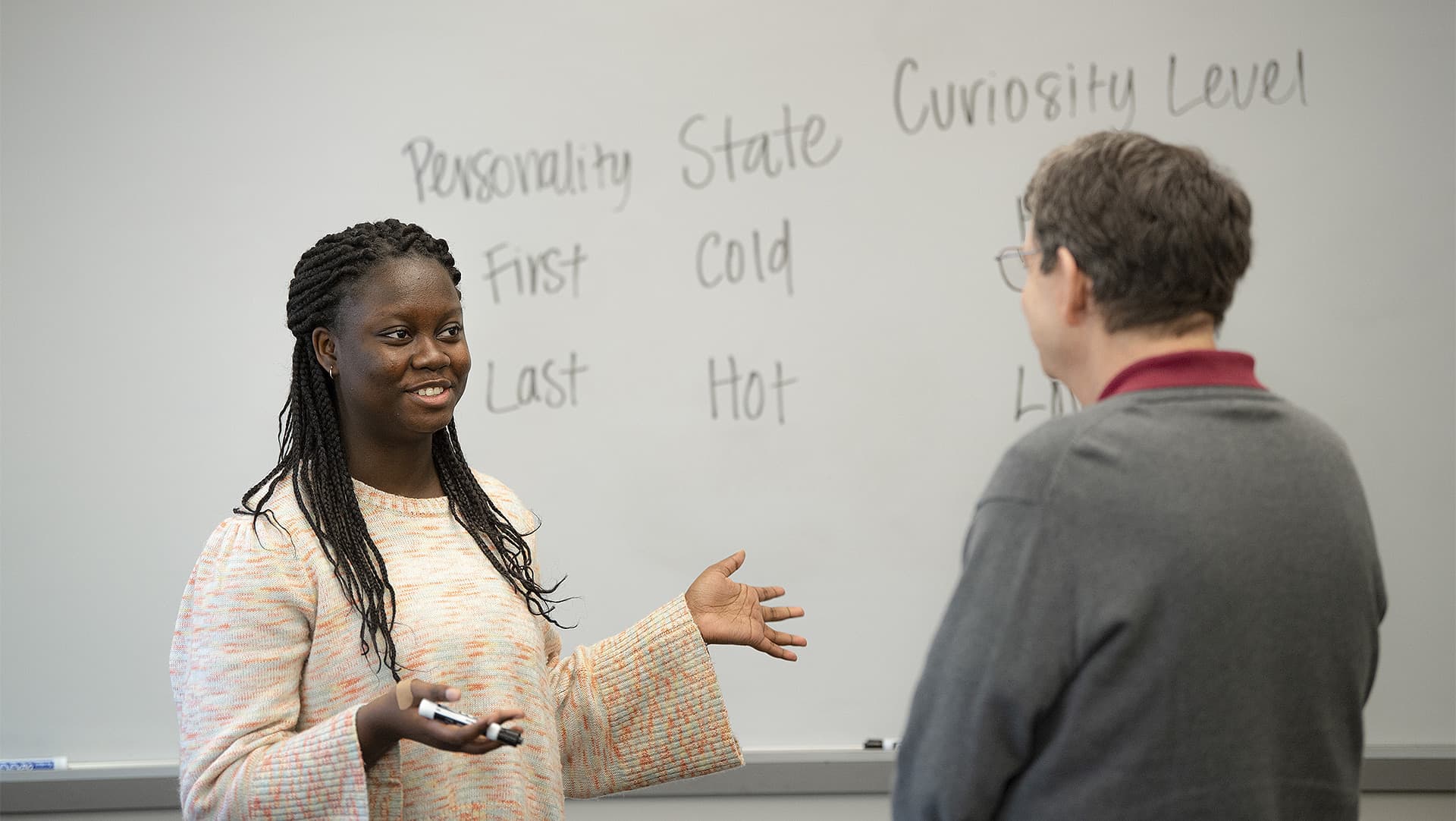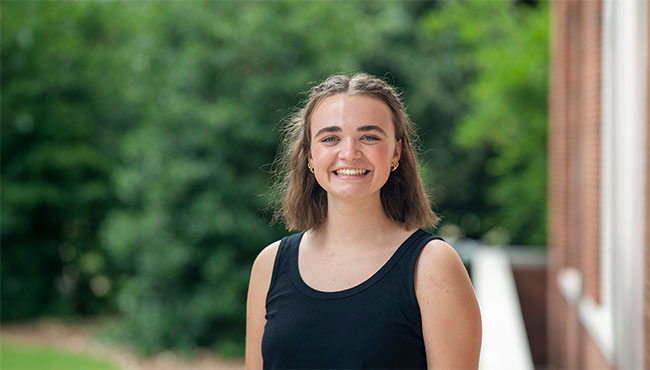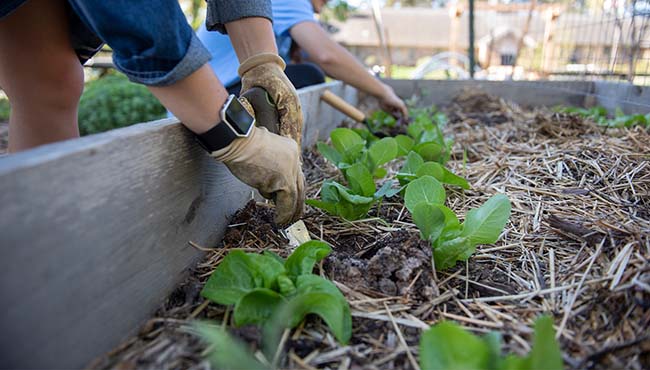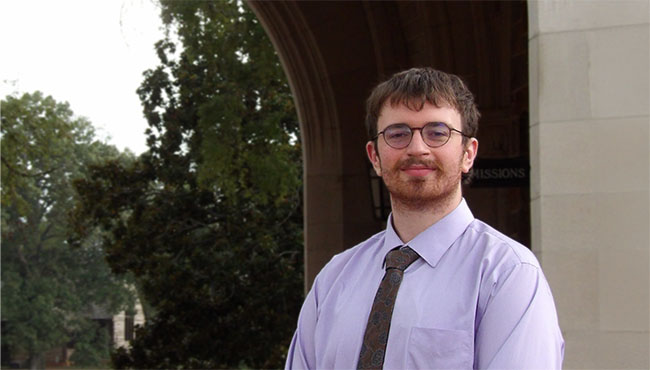Psychology major and Honors student Lynneatte Quenin ’22 realized her calling while watching a documentary about individuals who volunteered their time helping people on the brink of suicide at different bridges in South Korea. She says, “Listening to their stories about the people they saved and the process of encouraging and uplifting someone who is on the brink of death inspired me to do the same.”
Anticipating a career in counseling, Lynneatte came to Berry seeking a degree in psychology. But this goal shifted when she delved into research and data analysis under the guidance of Associate Professor of Psychology Victor Bissonnette. She plans to complete a master’s degree in data science and analytics at Georgia State University and then a Ph.D. in social psychology. Her ultimate goal is working with nonprofit organizations and government agencies to find effective ways to improve their services and reach more people.
Lynneatte says, “Besides helping me with my personal and professional growth, Dr. Bissonnette has also been a great resource. Since his background in statistics, research and psychology is a lot more extensive than mine, he’s a lot more knowledgeable about effective research designs and statistical procedures. Without his help, I would not have been able to pull off my research on my own or even know the correct way to interpret the data.”
Through the psychology department’s George Scholars Program, Lynneatte took her research skills to the next level by working one-on-one with Bissonnette. “The focus of my research as a George Scholar was empathy, particularly the empathy we give ourselves. My research project was based on the phenomenon of the hot-cold empathy gap, which is where the intensity of one’s emotional state influences their decisions. For instance, if someone goes to the grocery store on an empty stomach, they are more likely to purchase unhealthy foods than if they were full,” Lynneatte explains.
“Beyond ourselves, the hot-cold empathy gap is also present in our perceptions of others’ choices. When we are not in a similar state as someone else, it can be harder for us to understand the choices that they make and predict their choices. This can have serious implications such as blaming a victim for not seeking help in an abusive situation or neglecting someone who is in need of help.”
Balancing the demands of scholarly research, Lynneatte engaged with others in a variety of ways: disaster workforce engagement volunteer with the American Red Cross, crisis counselor with Crisis Text Line and community service partner with the Salvation Army. She connected with local leaders through the Berry College Integrity in Leadership Program and the Lettie Pate Whitehead Scholarship, which empowers women through community service.
Reflecting on the Berry community, Lynneatte says kindness is what she’ll remember: “In my freshman year, I lived in the Ford buildings and got caught in the rain on my way back from classes. Someone stopped and asked me if I needed a ride. At Berry, everyone is willing to welcome you with open arms, listen to you and make sure you have everything that you need.”



